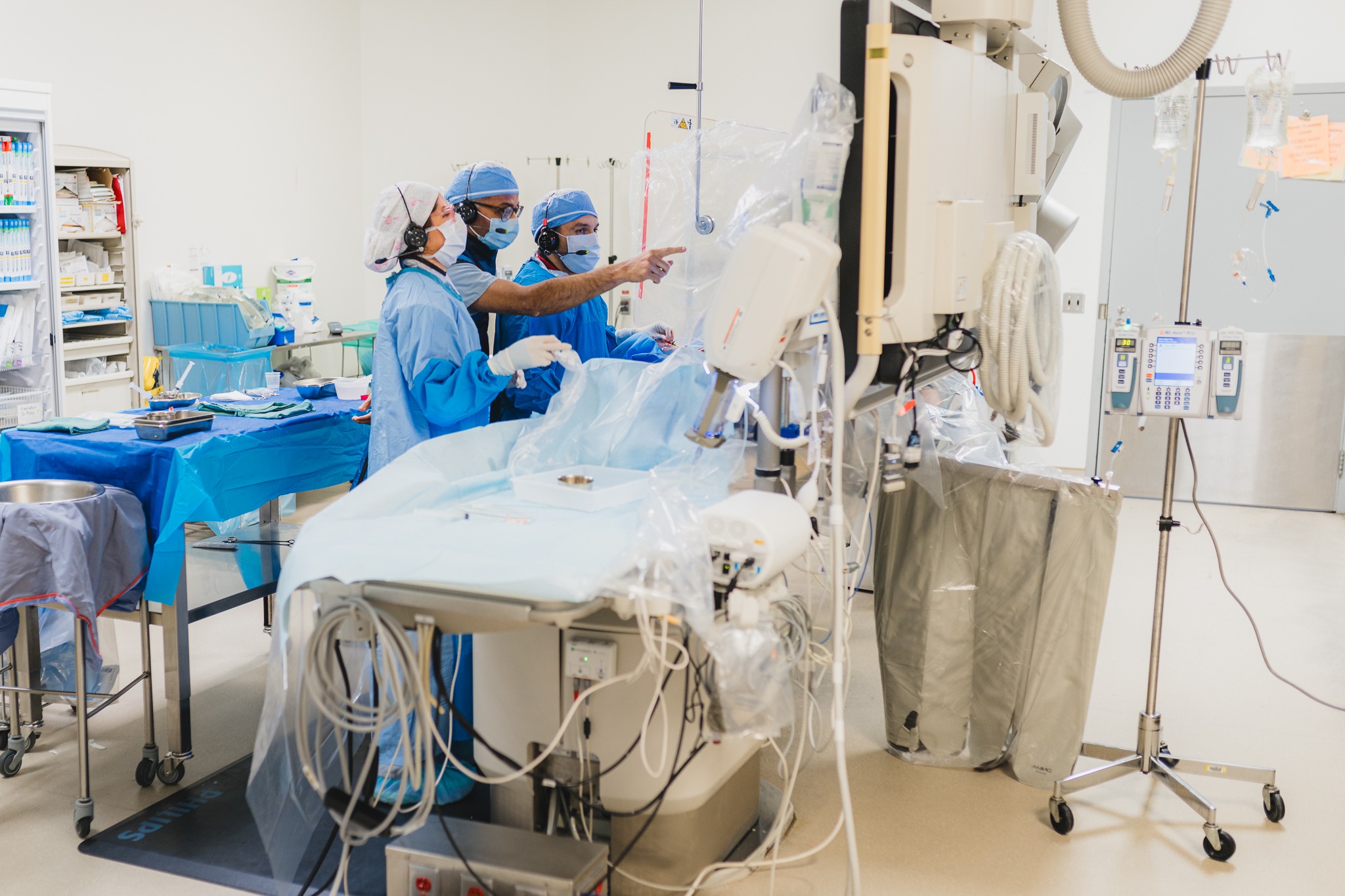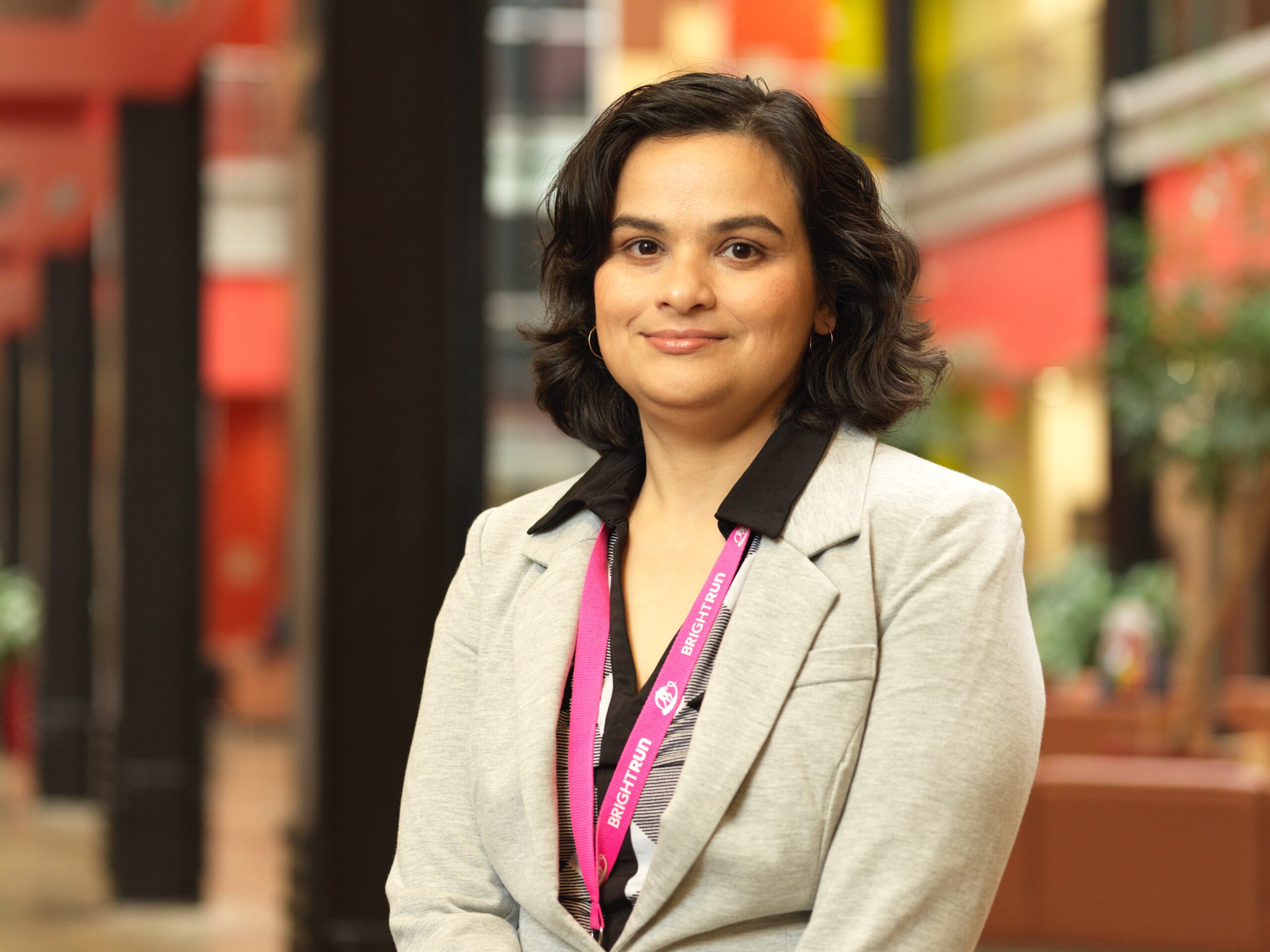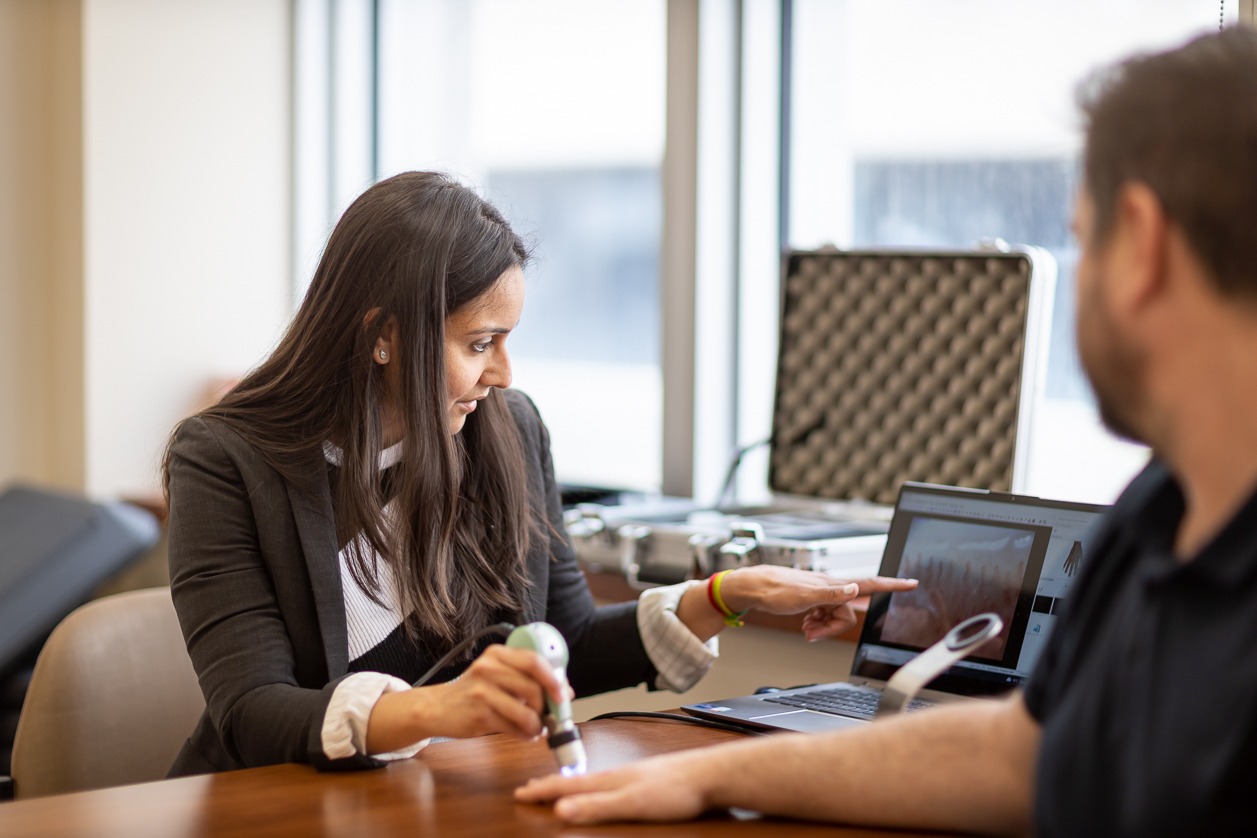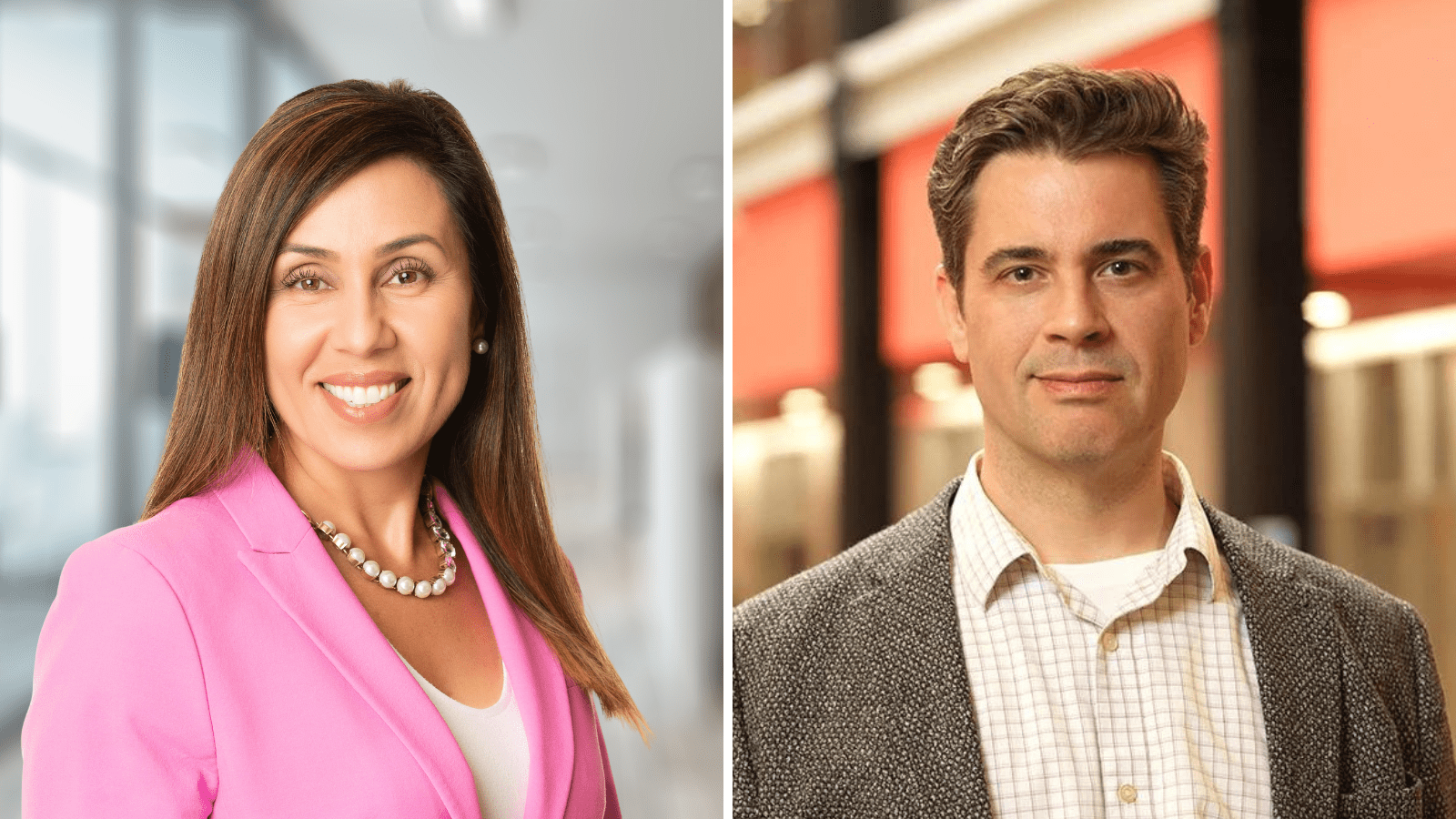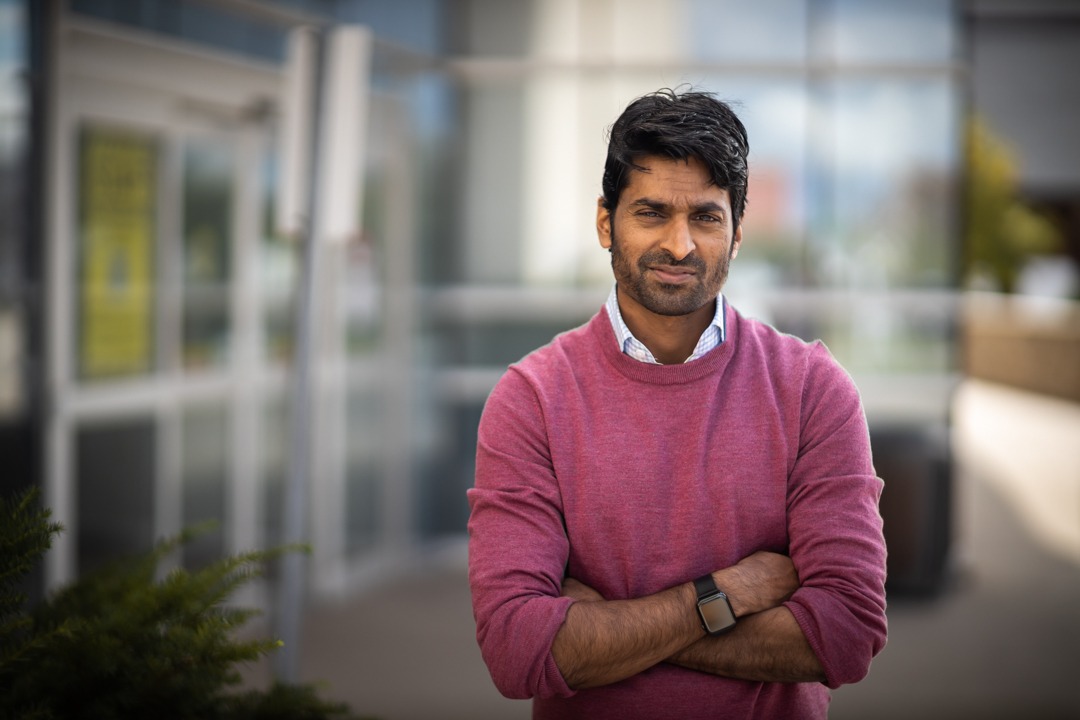
Writing the roadmap for AI in hospitals
Artificial Intelligence (AI) is revolutionizing every industry, including health care where it’s creating better and faster care for both patients and doctors. For example, with AI it’s now possible for all the notes from your doctor’s appointment to be automatically and securely entered into a computer based on your conversation. And medications can be customized and ordered instantly.
But with such advancements come careful considerations. What’s the appropriate use of AI in health care? How is it best used for clinical decision-making? And what guidelines and guardrails should health care put in place to ensure AI is safe?
“There’s no roadmap right now to help organizations do this.” — Dr. Jeremy Petch
Leaders at Hamilton Health Sciences (HHS) are working on answering all of those questions. And through this process, HHS has earned a reputation as an international leader in introducing AI into health-care settings safely, responsibly and ethically.
Fundamentally reimagining health care delivery with AI
The chief architect behind this accomplishment is Dr. Jeremy Petch, director of HHS CREATE (Centre for Data Science and Digital Health), and his team. Staffed with experts in software engineering, AI and data sciences, CREATE works with hospital clinicians including physicians to develop new ideas and create digital solutions that fundamentally reimagine how health care is delivered.
“Dr. Petch is pioneering innovation in health care, bringing sophisticated yet practical technologies to the sector” — Carole Piovesan, lawyer specializing in AI risk management.
CREATE also works with organizations in both the public and private sector, from local start-ups to national agencies like the Canadian Space Agency and international bodies including the World Health Organization.
“Dr. Petch and CREATE are harnessing the latest technology to develop new and innovative models of care, with significant benefits that include improved patient care, a better work environment for clinicians, and significant cost savings to the health-care system.” says Dr. Ted Scott, vice president of innovation and partnerships for HHS.
Potential is enormous for AI in clinical settings

Dr. Jeremy Petch, director of HHS CREATE, and Dr. Ted Scott, vice president of innovation and partnerships for HHS.
This work in AI, particularly over the last two years, has positioned HHS as an international leader in research aimed at ensuring that this technology is properly and safely introduced in health-care settings.
“There’s no roadmap right now to help organizations do this,” says Petch, of the lack of international guidelines for incorporating AI into health-care settings.
“The potential for AI in clinical settings is enormous, but time must be taken to do due diligence behind the scenes. Otherwise this technology, which has the potential to do tremendous good, could end up being extremely harmful.” For example, using AI to determine drug dosages for patients would be very dangerous if not properly developed.
International expert
Petch’s expertise has made him a sought-after speaker internationally.
He has presented at several large events organized by the international Healthcare Information and Management Systems Society, a member-based society committed to reforming the global health ecosystem through the power of information and technology.
The Federation of State Medical Boards invited Petch to Washington, D.C. to share his knowledge around responsible use of AI by physicians, as AI starts being introduced at hospitals and doctors’ offices. And in June, he’ll travel to Brussels as a guest speaker at the 2024 AI Governance Global Conference.
“Dr. Petch is pioneering innovation in health care, bringing sophisticated yet practical technologies to the sector,” says Toronto lawyer Carole Piovesan, who is also presenting in Brussels. Piovesan is a managing partner at INQ Law, focusing her practice on privacy, cyber readiness, data governance and AI risk management.
“Importantly, Dr. Petch is leading by example, shepherding technologies in health care from ideation to safe operationalization,” says Piovesan. “This leadership is critical since such use cases can showcase the true potential of responsible AI for better quality of care and patient experience.”
AI at HHS
Petch and CREATE are partners in a new study that’s harnessing the power of AI to help determine which cardiac patients need an invasive procedure to check for life-threatening artery blockages to the heart, and which patients who would benefit from a simpler, non-invasive test using CT scanning. As part of this work, they were able to train the AI algorithm so it learned to avoid a historical gender bias.
“Our knowledge in how to prevent bias in AI has advanced enormously over the last three years,” says Petch. “We’re much better at detecting and correcting bias now, and as a result best practices are emerging.”
AI is also being used as a way to process data about breast cancer, for monitoring such things as adherence to clinical guidelines, with the goal of quality improvement.
Other key areas are clinical effectiveness – how to measure and test algorithms effectively in a clinical setting — as well as clinician and hospital responsibilities for the use of AI.
The new norm
Petch predicts that AI scribing, not currently used at HHS, will soon been the norm in hospitals and doctors’ offices.
Instead of the doctor entering patient information into a computer system, AI scribing takes on that role just by “listening” to the conversation, much like virtual assistants such as Siri, Alexa or Google.
For example, an AI scribe software system handles the notetaking when a patient speaks with their doctor and automatically creates a report that’s entered into the hospital’s secure computer system. AI scribing could even capture a patient’s medication order and send it to the pharmacy for the prescription to be filled.
“The growth of AI scribing will be exponential,” says Petch. “In the next few years you’re going to see it everywhere.”
This technology gives doctors more time with their patients, because they wouldn’t be spending hours inputting information into a computer or writing prescriptions for medication, says Petch. This, in turn, helps prevent physician burnout.
The CREATE team helped build an AI scribe called Autoscribe with Mutuo Health, an Ontario-based company founded by one of Petch’s former students at University of Toronto, where Petch is an assistant professor. It analyzes a conversation between doctor and patient, and automatically populates key information into the patient’s electronic medical record.
“Autoscribe is an example of where health care is heading, and the vital, innovative role that Dr. Petch and the CREATE team are playing in ensuring a safe and responsible pathway,” says Scott, the innovation and partnerships vice-president.
“HHS is on the forefront of AI advancements as a direct result of Dr. Petch and the CREATE team,” adds Scott. “And because Dr. Petch and CREATE are here, our community will be among the first to realize these gains.”

